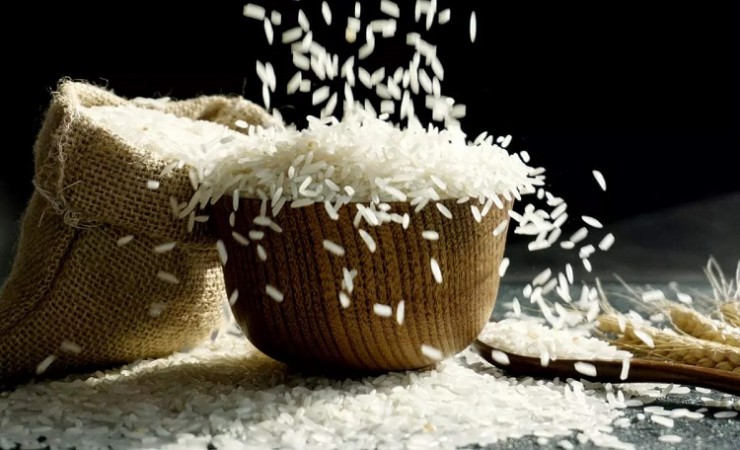
New Delhi: In a recent development concerning the rice export ban, the Indian government has taken a crucial step to prevent exports of basmati rice below the value of $1,200 per tonne. This decision aims to tackle potential instances of illegal exports of regular white rice being falsely labeled as premium basmati rice.
The commerce ministry, in an announcement on Sunday, revealed that it had directed the Agricultural and Processed Food Products Export Development Authority (APEDA), a trade body, to refrain from registering contracts that fall below the $1,200 per tonne threshold. Existing contracts below this set limit have been temporarily put on hold. Additionally, a committee led by the chairman of APEDA has been established to assess the way forward, according to a PTI report. The primary objective behind this move is to monitor retail rice prices effectively. The government has been proactively implementing various measures to ensure sufficient domestic supply. Last year, in September, the export of broken rice was prohibited, and last month, restrictions were imposed on the export of non-basmati white rice. Moreover, a 20 percent export duty was recently imposed on par-boiled non-basmati rice, effectively limiting all forms of non-basmati rice exports.
To prevent the misclassification of non-basmati rice as basmati rice during export, APEDA has been instructed to introduce additional safeguards. The trade body will now only register basmati export contracts valued at $1,200 per metric tonne (MT) and above, issuing registration-cum-allocation certificates (RCAC). Contracts falling below this price threshold will undergo evaluation by the committee headed by the chairman of APEDA. Highlighting the significant price variance in basmati export contracts, the commerce ministry noted that prices ranged from as low as $359 per MT to an average of $1,214 per MT in the current month. As a result, the committee has been tasked with submitting a report within a month's time. Based on this report, decisions will be made regarding the export of basmati at lower prices.
In the previous fiscal year, India's total basmati exports amounted to $4.8 billion, with a volume of 45.6 lakh tonnes. Meanwhile, exports of non-basmati rice varieties were valued at $6.36 billion, encompassing a volume of 177.9 lakh tonnes. Notably, the country's total rice production increased to 135.54 million tonnes during the 2022-23 crop year (July to June), compared to 129.47 million tonnes in the preceding year. Despite restrictions on certain varieties, rice exports have surged during the current year. Approximately 7.33 million tonnes of rice (excluding broken rice, which faced a ban) were exported from India, marking a 15 percent rise from the 6.37 million tonnes exported during the same period in the previous year.
The ministry highlighted that the competitive pricing of Indian rice in the international market has bolstered demand and subsequently led to record exports in the last two fiscal years, 2021-22 and 2022-23. It also mentioned that credible reports regarding the misclassification and illegal export of non-basmati white rice, which has been banned since July 20 this year, have prompted these regulatory actions.
Tipra Motha Chief Meets Union Home Minister Ahead of Tripura By-Elections
Rahul Gandhi Applauds Women-Led Chocolate Factory in Ooty, Advocates Support for MSMEs
Bihar CM Nitish Kumar Expects More Parties to Join Opposition INDIA Bloc